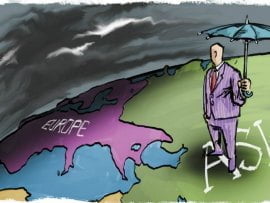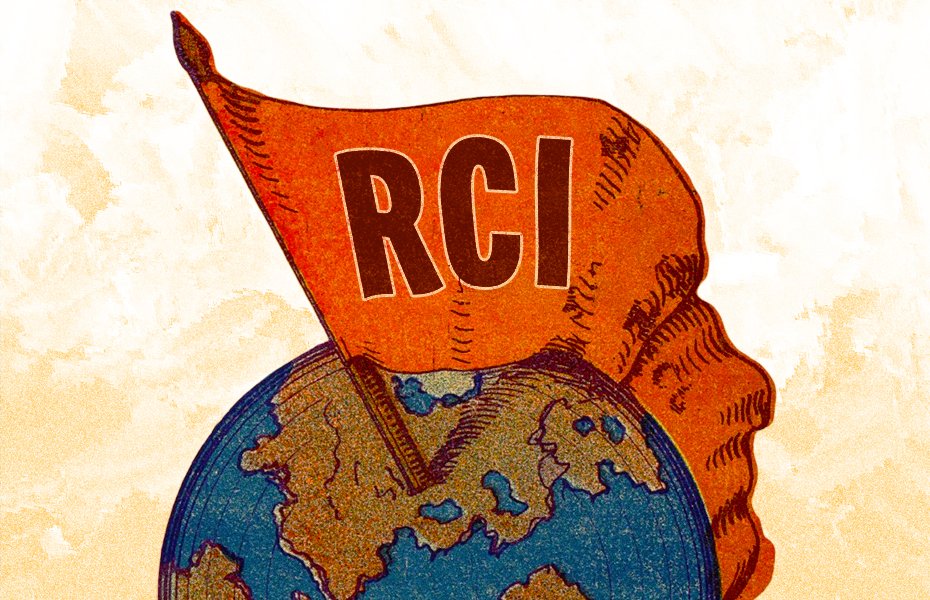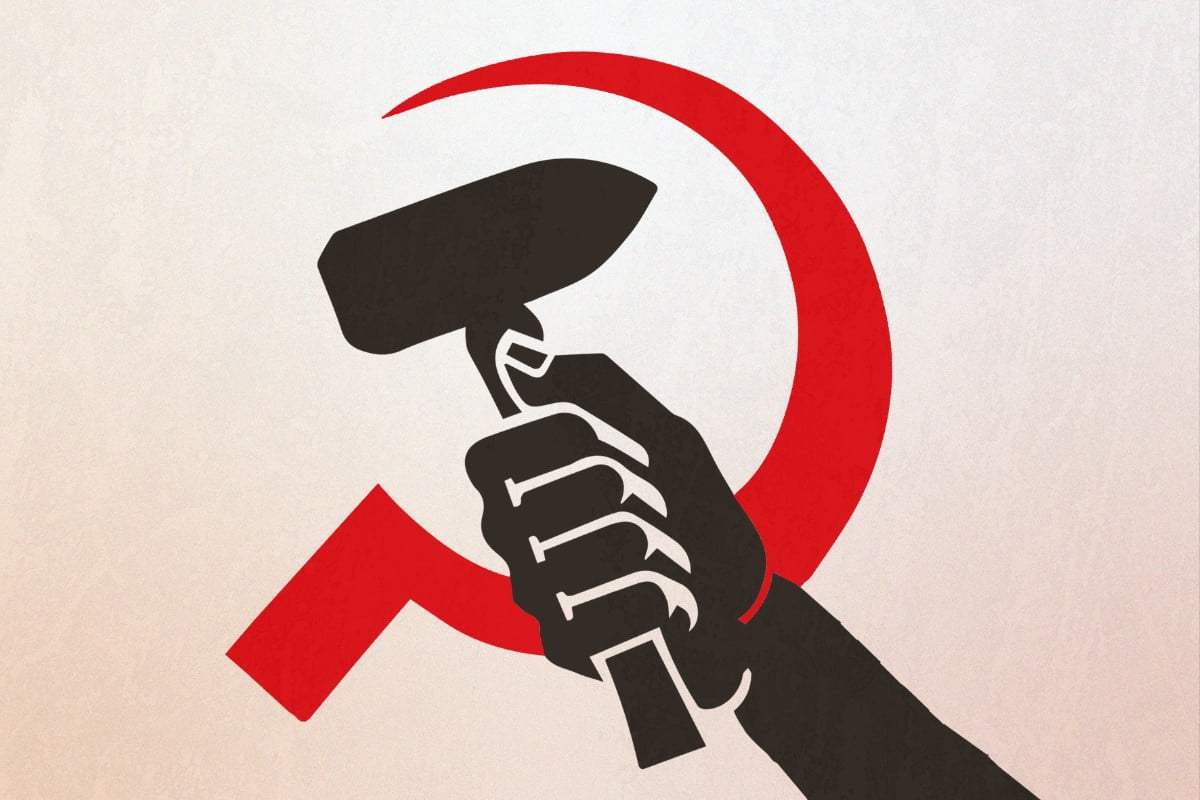Twelve months ago the economists were predicting that 2014 would be the Year of Recovery. One year later nobody seriously maintains that vain illusion. The bourgeois economists do not understand the crisis and have no solution. It is a case of the blind leading the blind. Alan Woods analyses the state of the world economy at the dawn of the New Year.
As they danced away the Old Year and welcomed the New with, as usual, copious quantities of the finest champagne, the bourgeois from New York to London must have felt a satisfying glow of confidence. Over six years after the 2008 calamity, are they not still firmly in command? The earlier fears that the crisis must lead to some terrible social and political Apocalypse have dissipated. Capitalism is alive and well. The profits are flowing freely and the rich are ever richer. In short, everything is for the best in the best of all capitalist worlds.
All this reminds one of the mood of false confidence that must have existed in the ballroom of the Titanic just before someone on deck spotted the dim outline of an iceberg. Hovering over this merry carnival of money-making, those with eyes to see could already detect the gathering storm clouds. Twelve months ago the economists were predicting that 2014 would be the Year of Recovery. One year later nobody seriously maintains that vain illusion. The world economy is at best stagnant and an increasing number of economists are predicting a new downturn.
Marxism explains that in the last analysis the viability of any socio-economic system is determined by its ability to develop the productive forces. That is the fundamental reason for the present crisis. Bourgeois society finds itself in a blind alley from which there is no way out. The bourgeois economists do not understand the crisis and have no solution. It is a case of the blind leading the blind.
The crisis of 2008 was a historic turning point. Before that the economists and politicians all agreed that the state must play no role in the economy. But ever since then all the big banks have had to lean on the state as on crutches. The generosity of the state towards the banks is now transformed into a Scrooge-like meanness towards the rest of the population. All of a sudden there is no money for schools and hospitals, for the poor and sick, for pensions and grants to students. But for the rich parasites there is money with no limit.
This unparalleled generosity to the bankers was intended to stimulate credit and thus stimulate an economic recovery. But the billions of public largesse have not led to any recovery worthy of the name. The bankers pocketed the money and used it to speculate on the stock exchange to make even bigger profits. Inequality has grown to unprecedented levels. Like a gigantic parasitic worm sucking the life blood of society, the rich grow ever richer, while millions are plunged into poverty and despair.
The real perspective was shown last year by a report of the OECD that concluded that there would be no growth of the world economy for the next fifty years. What does that mean? It means decades of austerity, cuts and attacks on living standards. That is a finished recipe for an explosion of the class struggle everywhere. The attempt to solve the crisis through quantitative easing in the USA was a measure dictated by desperation. Now they have been forced to retreat. The example of Japan is even more eloquent. Abe’s attempt to do the same thing has also ended in an ignominious rout. Meanwhile discontent grows.
This crisis affects every country in the world. Globalization is manifested as a global crisis of capitalism. China was supposed to act as the motor force of the recovery. But growth in China is slowing. All the so-called BRICs are in crisis. Brazil is in recession; India is in crisis, as revealed in a sharp fall in the value of the rupee. The Russian economy has been hit by the falling price of oil (itself a reflection of stagnant and falling demand), aggravated by sanctions, and is facing a serious recession.
One might have thought that the Saudis would decrease oil production to prop up the falling price of oil. On the contrary, the Saudis are continuing to boost oil production in order to destroy the growing sector in the USA of oil production from fracking. But the falling price of oil spells disaster for other oil producing nations like Iran, Iraq and Venezuela.
The crisis of Europe
Two years ago Mario Draghi stated that the EU would spend all that was necessary to defend the Euro. But who has the sums necessary? The Germans, and the Germans have no particular desire to underwrite the debts of the countries of southern Europe. Unemployment in Europe officially stands at around 11%, which understates the reality. In Spain it is around 25% and Greece is even worse. Out of every three young Greeks two have no work. Nothing has been solved in Greece.
The crisis of the Euro began five years ago in Greece and it has now entered a new stage in Greece. After five years of cuts, austerity and suffering public debt has gone from 125% of GDP to 175%. All the sufferings of the people have been in vain. Greece is hovering on the brink of a new and even more terrible crisis. The collapse of the right-wing bourgeois coalition led by Adonis Samaras has opened up a new and stormy period. All the opinion polls indicate that Syriza will win the election at the end of January.
 Samaras thought that Brussels would give him some room for manoeuvre, but this was not the case. Merkel and the other masters of Europe were implacable. They were demanding new and even deeper cuts in pensions and living standards. The Greek Prime Minister therefore attempted a desperate gambler’s throw over the election of a new President. Since this post has a more or less ceremonial character, such an election would normally be met with total indifference. But this time it resulted in an immediate crisis. Sharp falls on the Athens stock exchange revealed the extreme nervousness of the bourgeoisie.
Samaras thought that Brussels would give him some room for manoeuvre, but this was not the case. Merkel and the other masters of Europe were implacable. They were demanding new and even deeper cuts in pensions and living standards. The Greek Prime Minister therefore attempted a desperate gambler’s throw over the election of a new President. Since this post has a more or less ceremonial character, such an election would normally be met with total indifference. But this time it resulted in an immediate crisis. Sharp falls on the Athens stock exchange revealed the extreme nervousness of the bourgeoisie.
The bourgeoisie is terrified of the prospect of a Syriza government in Greece. What scares them is not so much the leaders of Syriza, who are now attempting to reassure the Troika that they are responsible politicians, but the class forces that are behind Syriza. The Greek workers have displayed colossal militancy. They have participated in more than thirty general strikes in the past four years. But this has its limits. In the past demonstrations and strikes could sometimes force the government to change its policies. But that is no longer the case. The crisis is too deep to make serious concessions. In Greece there have been over thirty general strikes. The weapon of the one-day strike thus loses any power it might have had. It becomes a meaningless ritual that the bourgeois and the government can ignore.
Blocked on the industrial front, the workers naturally turn to the political front in search of a solution to their most pressing problems. They will vote for Syriza, but past experience has made them wary of all politicians. Tsipras promises reforms: an increase in the minimum wage, free food and electricity for poor families, increased employment in the public sector. The problem is that on a capitalist basis these measures cannot work. A Syriza government will be immediately met with the sabotage of the bankers and capitalists. Even before the elections were announced the press was already reporting a massive outflow of capital. This is already a warning of the strike of capital that would hit a left-wing government in Greece.
Worldwide instability
Wherever you look there is instability: economic, financial, social, political and diplomatic instability. The present world situation has no precedent in history. In the past there were always three or four Great Powers that balanced each other out. But since the fall of the USSR there is only one Superpower, the United States. The USA spends 640 billion dollars every year on arms. No other country can compare with this vast military power. And yet the power of US imperialism has limits and these limits were exposed in Iraq and Afghanistan.
Like an elephant in a China shop, the myopic American imperialists have destabilised the whole Middle East and North Africa as well as Pakistan. Now they are obliged to send the US air force to bomb the same Jihadis that they and their Saudi and Qatari allies built up, armed and financed in a failed attempt to overthrow the regime of Assad in Syria. This sudden lurch in American policy in the region has had a consequence that was neither foreseen by the ladies and gentlemen in Washington nor desired by them. It has tilted the balance sharply in favour of Iran, which now has effective control over large parts of Iraq, as well as further increasing its influence in Syria and Lebanon.
Because of the 100th anniversary of the First World War, many people have tried to draw analogies with the present situation. But such analogies are entirely hollow. The present situation is very different from that of August 1914. The assassination of Franz Ferdinand was immediately followed by an ultimatum from the Austrians. Now, with Russia intervening in Ukraine the Americans make a lot of noise and in practice do nothing – at least in military terms. Europe’s impotence has been even more cruelly exposed by the Ukrainian crisis. They have introduced sanctions, but this immediately backfires on Europe, especially Germany. The collapse of the rouble means that German exports to Russia are blocked.
Russia itself is now in crisis. This will mark a turn in the situation. The Russian workers were prepared to tolerate Putin as long as he appeared to guarantee stability and economic growth. But now the situation is changing into its opposite. The Ukrainian crisis enabled him to wrap himself in the flag of Russian nationalism, appealing to the natural instinct of the Russian workers to express their sympathy and solidarity with their Ukrainian brothers and sisters. But Putin’s actions are exposing his cynical attitude to the people of Ukraine. His nationalist rhetoric can serve to fool the masses for a time, but sooner or later the nationalist fog will lift and there will be a sharp reaction against the present regime. With an inevitable delay the Russian workers will draw the necessary conclusion and move into action.
Revolutionary perspectives
Far from having succeeded in stabilising the situation, world capitalism is sinking deeper and deeper into crisis. As we said long ago, every attempt of the bourgeois to restore the economic equilibrium merely serves to destroy the social and political equilibrium. We now see this in one country after another. The so-called recovery is the weakest in history and the only solution that occurs to the ruling class and its political agents is more cuts and more austerity, even though experience has proved that the only result is to deepen the crisis and increase the deficits, while provoking social polarisation that threatens to go beyond the bounds of legality and threatens to overthrow the existing order.
The unprecedented growth of inequality is tearing apart the very fabric of social cohesion. Marx predicted that capitalism would lead inevitably to the concentration of capital and a polarisation between rich and poor. Today this prediction of Marx, which provoked the indignation of the bourgeois university sociologists, has now been demonstrated in a laboratory fashion. Everywhere there is a deep hatred of the bankers and the rich and also a deep distrust towards all the existing political parties, not just the bourgeois parties but also the so-called parties of the Left.
Everywhere we see a growing social unrest, although it as yet lacks the necessary focus, organization and leadership. In Britain three years ago there were riots of the unemployed youth, which took everybody by surprise. In Italy not long ago the trade union leaders lifted their little finger and one million workers demonstrated on the streets of Rome. In Greece the workers have staged over thirty general strikes. We have seen social explosions in Portugal, Brazil, Turkey, and even earlier in Tunisia and Egypt. Faced with these facts, who will dare to say that the masses are passive and apathetic?
Time and again the masses have shown their willingness to fight. But when they move into action to try to change society, they do not find the organization and leadership that could provide the necessary cohesion and clarity that alone can guarantee success. On the contrary, they find that the existing reformist organizations act as a colossal brake on the movement and a barrier in its path.
The reformist leaders consider themselves to be great realists but in fact are the worst kind of Utopians. Cocooned in their comfortable offices and the rarefied atmosphere of the parliamentary debating chamber, they are completely out of touch with reality. They do not see the mood of boiling anger that exists in the depths of society. Lacking any confidence in the working class, they see everything through reformist spectacles that blind them to reality.
It is the lack of the subjective factor – the revolutionary party and leadership – that is the main reason for the protracted character of the crisis. It is also this that gives it such a convulsive character. The central contradiction of the epoch is the glaring contrast between the maturity of the objective situation for revolution and the bankruptcy of the existing organizations. As Trotsky put it in 1938, the crisis of humanity can be reduced to the crisis of leadership of the working class. The most important question is: how is this contradiction to be resolved?
For the sectarians the question is easily disposed of. They say: the reformist leaders have betrayed and will always betray. And they call on the workers to join them in the construction of a new party – an appeal always falls on deaf ears because the workers do not understand small organizations. Life has taught them that even to win a strike a mass organization is necessary. How much more is that the case when it is a matter of changing society?
Nevertheless, it is a serious mistake to make a fetish of any existing organization. “All that exists deserves to perish” was a maxim of Heraclitus that Marx often quoted. The fact that a party (or even a trade union) was once a mass force does not at all signify that it must always remain so. Parties, like people, can be born and flourish for a time, and then cease to exist. Such transformations are relatively rare in “normal” periods, but are not at all uncommon during periods of great social upheavals. In fact, they are very common.
Unparalleled degeneration
There are many parallels between this situation and the situation before 1914. Then a long period of capitalist upswing led to the national-reformist degeneration of the Social Democracy. That was cruelly exposed in August 1914. The long period of capitalist upswing that followed the Second World War led to an unparalleled degeneration of all the parties of the working class – not only the Social Democratic parties but also the former Communist Parties.
In a revolutionary period parties and leaders are subject to close scrutiny by the masses who are seeking a way out of the crisis. They develop a very acute sensibility and a critical attitude that was absent or poorly developed before. In “normal” periods, people tend not to get involved in politics, which appears to them as something alien, mysterious, incomprehensible. They would say: “Leave politics to the politicians. I don’t understand these things.” In the same way in the trade union, they would leave it to the officials.
But in a revolutionary period, this attitude begins to change. The masses take an increasing interest in political affairs that affect their lives very directly. In their search for solutions they look first to one party, then to another. Governments, programmes and leaders are put to the test, and, when they are found wanting, may be discarded and the masses will look elsewhere. Parties that seemed to be invulnerable and fixed for all times can decline and even disappear. In such situations, all kinds of crises, splits and regroupment will occur.
We can see this already happening. In Italy for decades the Communist party (PCI) was the strongest outside the Soviet Bloc. But the unparalleled degeneration of these parties led to the collapse of the PCI. Even earlier we saw the disappearance of the Italian Socialist Party, which in the past also had a sizeable base. Now nothing is left of either of these parties that were once seen as the traditional parties of the Italian working class.
I have sometimes heard it said that Pasok was the traditional party of the Greek working class, but this is false, or in any case requires some serious qualifications. In fact, Pasok was a relatively new party, dating from 1974. Prior to that, the Greek Communist Party (KKE) was the party of the Greek working class. Pasok emerged precisely in a revolutionary situation that followed the fall of the Junta. Its founder, Andreas Papandreu, the son of George Papandreu, a bourgeois liberal who played a treacherous role as a puppet of British imperialism after the Second World War, put forward a programe that was (at least in words) to the left of the KKE.
As a result Pasok attracted a large number of radicalised workers and youth who were repelled by the bureaucratic Stalinism of the KKE. For some years the Pasok could be considered the main party of the Greek working class, with strong links to the unions. But the KKE to this day still holds the allegiance of many politically conscious Greek workers and has a strong following in the unions. Meanwhile, what has happened to Pasok? Its participation in government during the present crisis meant that its leaders assumed full responsibility for the cuts and austerity that have ravaged Greek society. As a result its support has collapsed. It will be reduced still further in the elections this month. Indeed some observers have speculated that it might lose all its members of parliament and be reduced to an extra-parliamentary rump. The rapid rise of Syriza in Greece is an indication of processes that can take place everywhere.
The explosive emergence of Podemos in Spain reveals the extent and depth of popular discontent that exists everywhere. In Spain, as in Italy, the Communist Party was a mass force, but as a result of decades of degeneration and betrayals it has been reduced to a feeble shadow of its former self. To understand the speed with which events are moving, let us remind ourselves that only one year ago, Podemos barely existed as a political force. Yet now opinion polls in Spain put it as the first political option for voters, ahead of the Socialist Party (PSOE) and far ahead of the right-wing PP, which is heading for a severe defeat.
In Britain we saw the extraordinary success of the “Yes” vote in the Scottish referendum, which undoubtedly represented a fundamental change in the situation. There is no doubt whatsoever that this was a left-wing vote, a vote against the Tories and Liberals (I will deal with this in a separate article), but at the same time the Labour Party (which had a very powerful base in Scotland) also suffered rejection. At this moment of writing, incredible though it may seem, the Labour leader Ed Milliband is less popular in Scotland than even Tory leader David Cameron. As a result of years of right-wing Blairite leadership, Labour is seen by many as just another Establishment party.
Of course, one must not fall into impressionism. Parties like the British Labour Party still have big reserves of support in the masses. But it is equally true that the political scene is far more volatile, turbulent and unpredictable than it was in the past. One by one, all the political parties will be put to the test and enter into crisis. There will be violent swings to the left and to the right. Sudden and sharp changes are on the order of the day. We must be prepared for them.
It goes without saying that events will not unfold in a straight line. It is foolish in the extreme to imagine that the workers are always ready to mount the barricades. History itself teaches us that revolutions are rare events. Like wars, they are not the normal state of affairs but a break in “normality”. There is always a tendency to cling to the existing state of affairs. That is the most natural, the easiest and most comfortable road for the masses. But in a period of violent upheavals, the masses learn to question this “normality” and to seek a way out, exploring one avenue after another.
The crisis will unfold everywhere, at different rates and with differing intensity over years and decades. For a whole period the pendulum will continue to swing to the left. Of course, the revolution will not advance in a straight line. Periods of great advance will alternate with moments of tiredness, disillusionment and despair; great advances will be followed by lulls, defeats and even reaction. This inevitable delay – itself an expression of the weakness of the subjective factor – is not a bad thing from our point of view.
There are many parallels between war between the classes and wars between nations. A war is not one continuous battle but a series of skirmishes, in which the contending armies learn to gauge the relative strength of each side; advances are followed by retreats, and periods of violent exertion are interrupted by long periods of inactivity, watching and waiting. These inevitable lulls between battles are used to dig trenches, clean equipment, and to mobilise, drill and train new recruits.
For Marxists the study of perspectives is not an academic exercise but a way of preparing the cadres for the coming battles. Trotsky said that theory is the superiority of foresight over astonishment. Superficial empiricists who imagine themselves to be wise because they limit themselves to the “immediate facts” are always astonished when the march of events follow a path that they never foresaw and never dreamt could exist. Marxists on the contrary, look beyond the “facts” and penetrate beneath the surface to expose the deeper process at work in the depths of society.
This year is the 100th anniversary of the Zimmerwald Conference, when a tiny handful of revolutionary internationalists gathered together in the obscure Swiss hamlet of Zimmerwald in an attempt to organize and co-ordinate the forces that still stood for international socialism. When Lenin looked around the room and saw just how few they were, he remarked: “It seems you can put all the internationalists in the world into two stagecoaches!”
When Lenin uttered those words, the task facing the revolutionaries seemed almost hopeless. They were very small groups, mostly isolated from the masses and working under conditions of unimaginable difficulty. Yet only two years later the Russian Revolution had broken out and a vast tide of revolution carried Lenin and the Bolsheviks to power. Yes, indeed, sudden and sharp changes in the situation. And history has a habit of repeating itself.
Let us leave pessimism to the bourgeois and their reformist hangers-on. They have every reason to be pessimistic! But we have every right to be optimistic. We welcome the New Year with the spirit that our Age requires: a spirit of enthusiasm for the battle that impends, the battle between a worn-out, decaying and degenerate Order that has outlived its usefulness and is ripe to be overthrown, the battle of the future against the past, the battle for a new and better world: the battle for socialism.






